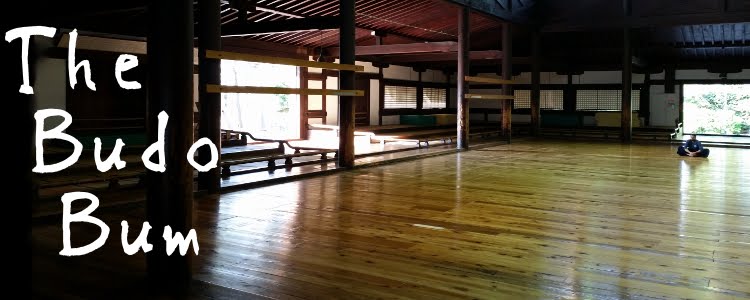Saturday, October 25, 2008
What's important
Martial arts, by themselves, are worthless. Any conflict art can only gains particular value by what it protects and preserves. The really wonderful thing is that most often, the skills can protect and preserve without ever being applied in a physical manner. That they are present is sometimes enough. Even when they are brought to bear, arts of conflict can be applied in ways that are not physical. Being able to apply physical conflict skills to other realms doesn't seem like a huge leap to me, but for many people who practice various forms of budo, it seems like a huge leap.
Sunday, October 19, 2008
Budo and "The Way"
In every system of budo in Japan, there is one, and only one, correct way of doing things. This seems arrogant, but it's not. A large subtext of Japanese culture is the simple idea that there is a best way to do something. That's not controversial. Clearly, for any activity, there is a best way to do it. To get there though, you have to decide what that way is. In each system of budo, in fact, in pretty much any group in Japan, there is an accepted best way to do things. This "best way" can be different for every group that does something similar. That's not the point. The point is that if you don't have an ideal to try and achieve, you can't advance. By having a "best way" each group, each budo, each ryu, each tea ceremony group, each flower arranging group, has an ideal they are trying to approach. With an ideal method and technique in place, they can work to polish and improve their own technique. The potential pitfall is to blind yourself to the possibility that someone else's ideal may actually better than yours for accomplishing you goal. The balance is to have an ideal and work to improve yourself so you get closer and closer to that goal, without becoming so attached to the ideal that you feel threatened by anyone who does it differently, and begin to attack or belittle them. If you do that, you betray the goal above your ideal, which is to become as good as possible. If you discover a flaw in your goal, the true Way is to improve and refine your goal, and then continue refining yourself. Sadly, most of the people I encounter are too busy proving that their way is the best, the one true way, and they never look at how much finer they could become by being open to refining their ideal technique as much as they are to refining their personal technique.
Subscribe to:
Posts (Atom)
